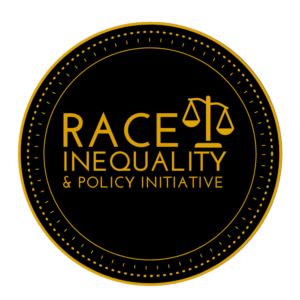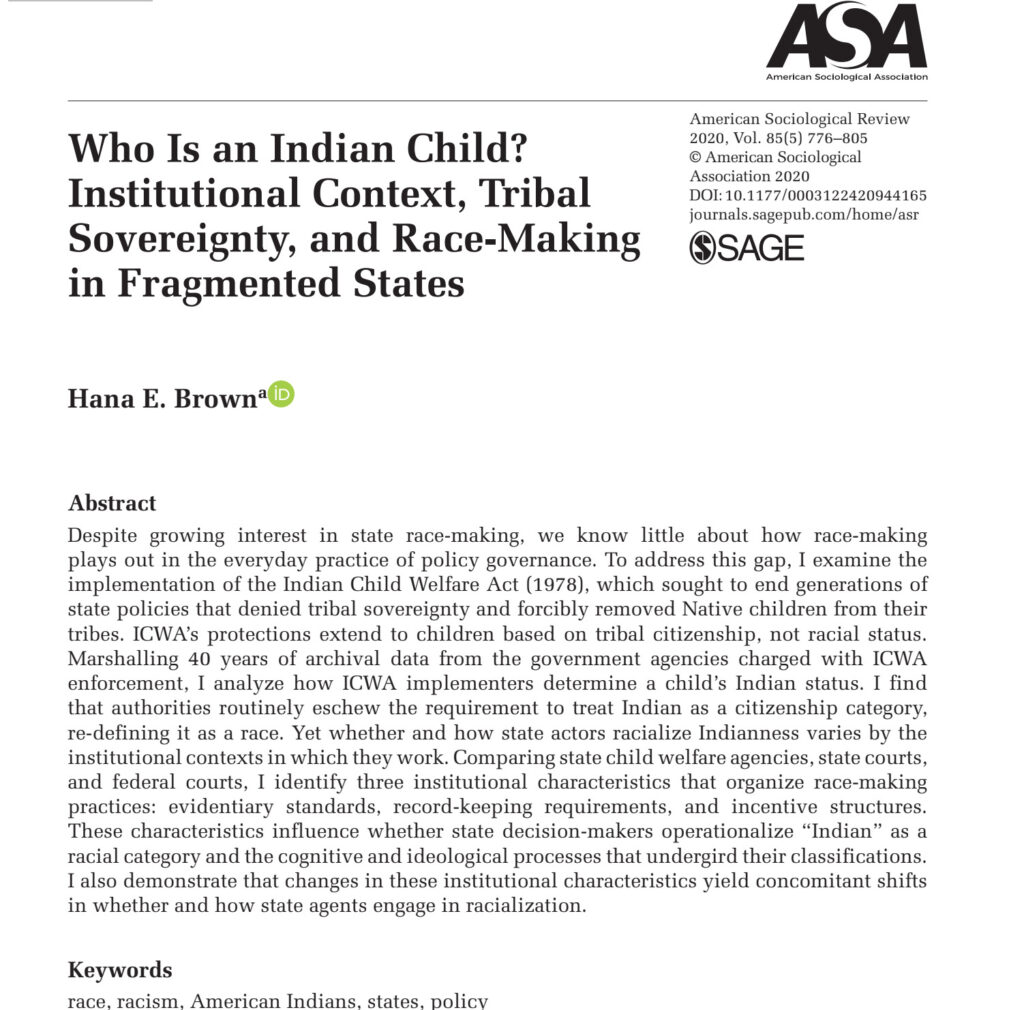Research
Featured Research from RIPI Affiliated Faculty
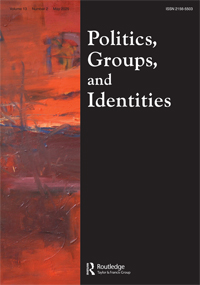
Sports Activism and the Racial Status Quo: Disentangling Individuals’ Conceptualization and Perceptions
By Dr. Betina Wilkinson, Dr. Lisa Kiang, and Elizabeth Seagroves
These last few years have been marked with a new wave of sports activism with a wide array of professional athletes drawing attention to racial injustices and calling for policy reform to address racial inequalities. While extant research has made some progress in developing our understanding of professional athletes’ political influence, we have limited knowledge of this new wave of sports activism. Building on research on sports history, system justification, racial order, and racial threat, we develop a Sports Activism and Racial Status Quo (SARSQ) theory asserting that sports activism is associated with racial justice topics and approval of sports activism is related to support for disrupting the racial status quo. Using survey and interview data, we find evidence that provides some support for this theory. Sports activism is associated with professional athletes making statements that raise awareness of racial injustices such as innocent Blacks dying in the hands of the police. Some favor sports activism because they approve of athletes, regardless of race, stepping out of their social arrangement, raising awareness of institutional racism, and prompting sociopolitical change. Further, members of racially minoritized groups do not provide outright approval of sports activism, speaking to the importance of continued research in the area.
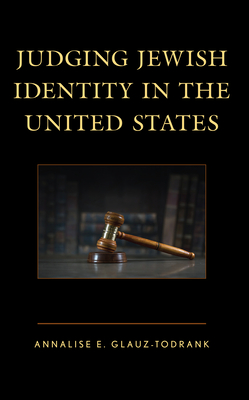
Judging Jewish Identity in the United States
By Dr. Annalise E. Glauz-Todrank
This book focuses on the first case to provide Jewish Americans with race-based civil rights to highlight the complexity of White-perceived Jewish racialization in the United States. In 1982, vandals defaced Shaare Tefila Congregation with Ku Klux Klan and neo-Nazi images and slogans. In the subsequent court case, the congregation’s lawyers were required to invoke “race”-based statutes since no “religion”-based laws applied to the desecration. Annalise Glauz-Todrank offers a nuanced analysis of the ways in which the members of the congregation themselves, their lawyers, and the vandals’ lawyers used the concepts of race and religion to argue their case. Judging Jewish Identity in the United States understands “race” and “religion” as White, Christian categories and illustrates how they have been accepted and internalized in the American environment. Focusing on the 1987 case Shaare Tefila Congregation v. Cobb, Glauz-Todrank examines how the judges, in each of the three courts, viewed the White-perceived Jewish congregants as well as how the congregants responded to the vandalism, felt relief by the cleanup day that incorporated their neighbors, and pursued the case in the context of their embodied Jewish American experiences
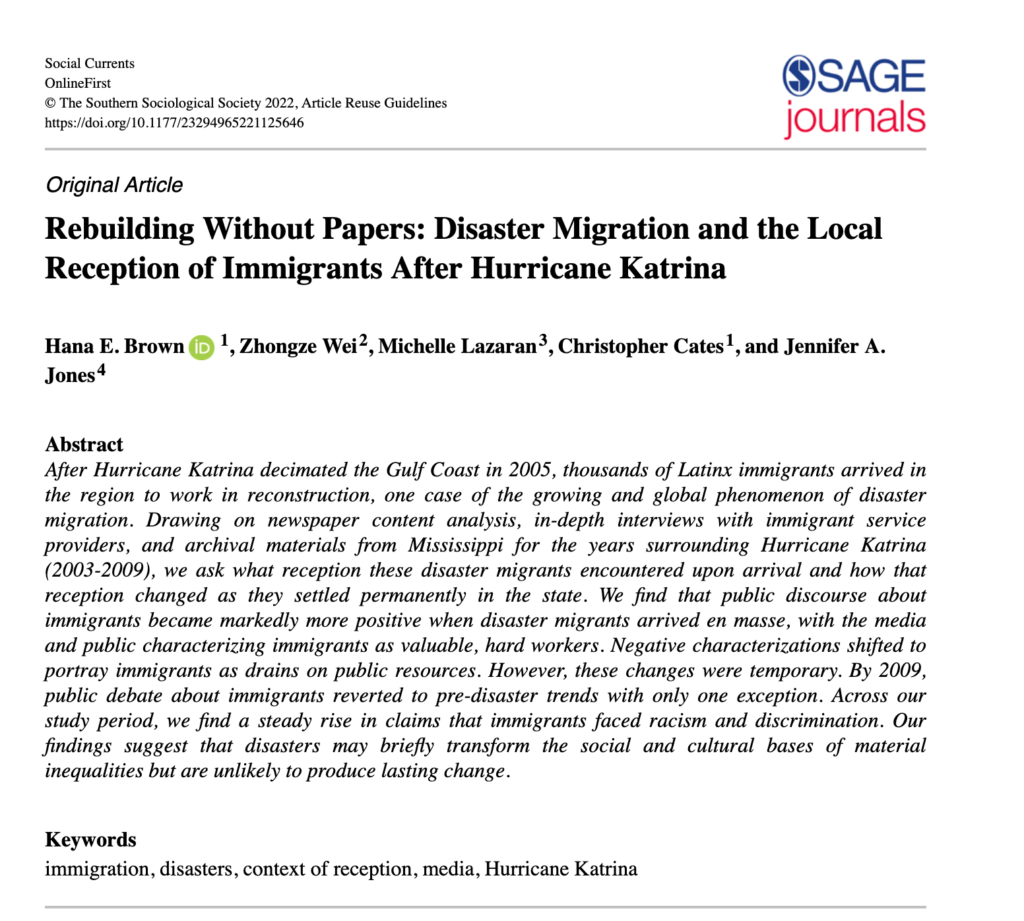
Rebuilding Without Papers: Disaster Migration and the Local Reception of Immigrants After Hurricane Katrina
By Dr. Hana Brown, Zhongze Wei, Michelle Lazaran, Christopher Cates, and Jennifer A. Jones
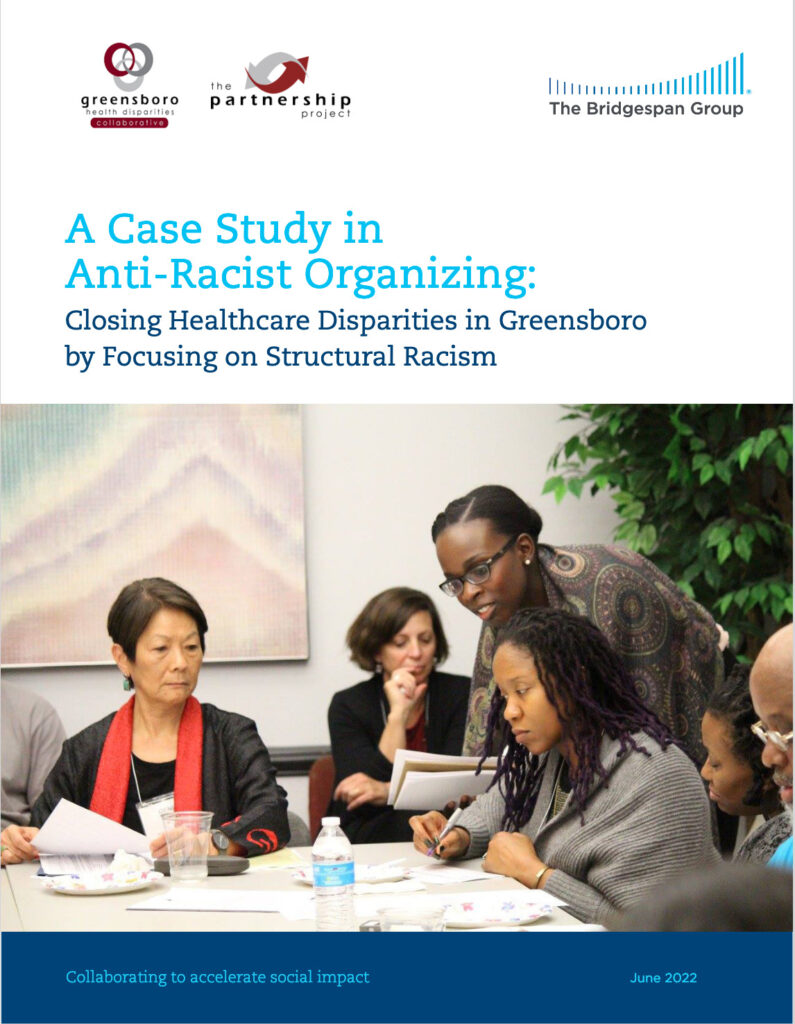
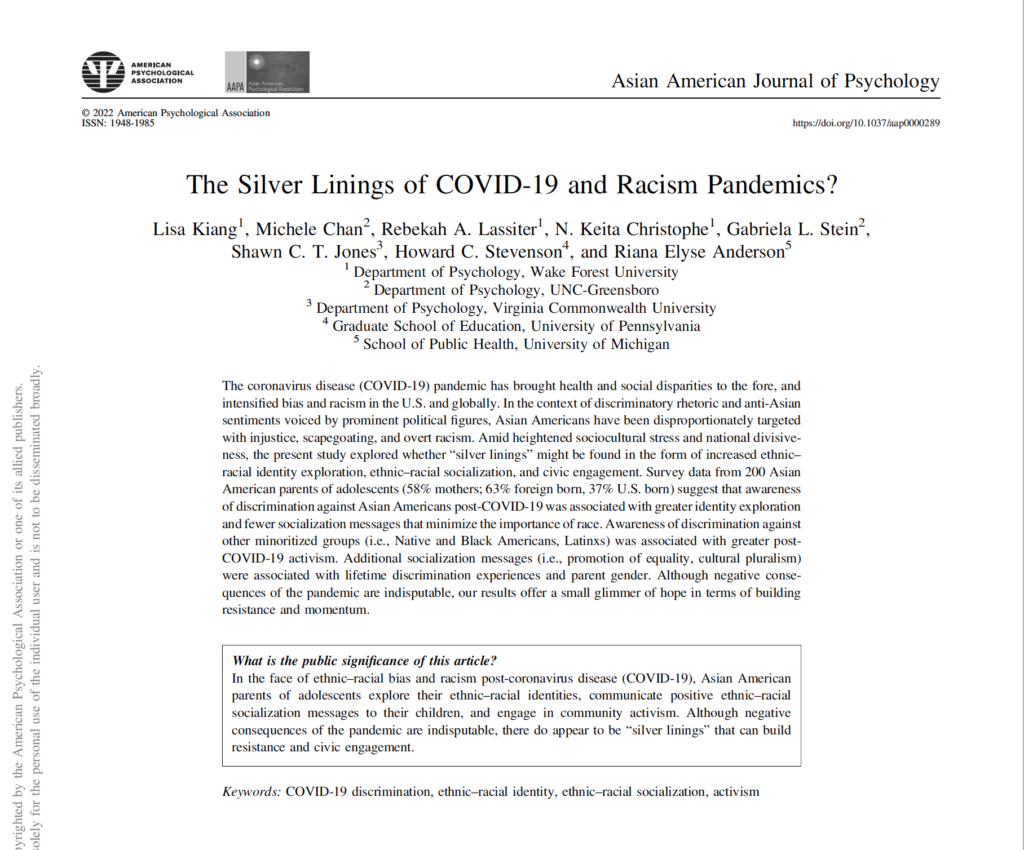
The Silver Linings of COVID-19 and Racism Pandemics?
By Dr. Lisa Kiang, Dr. Michele Chan, Rebekah A. Lassiter, N. Keita Christophe, Gabriela L. Stein, Shawn C.T. Jones, Howard C. Stevenson, and Riana Elyse Anderson
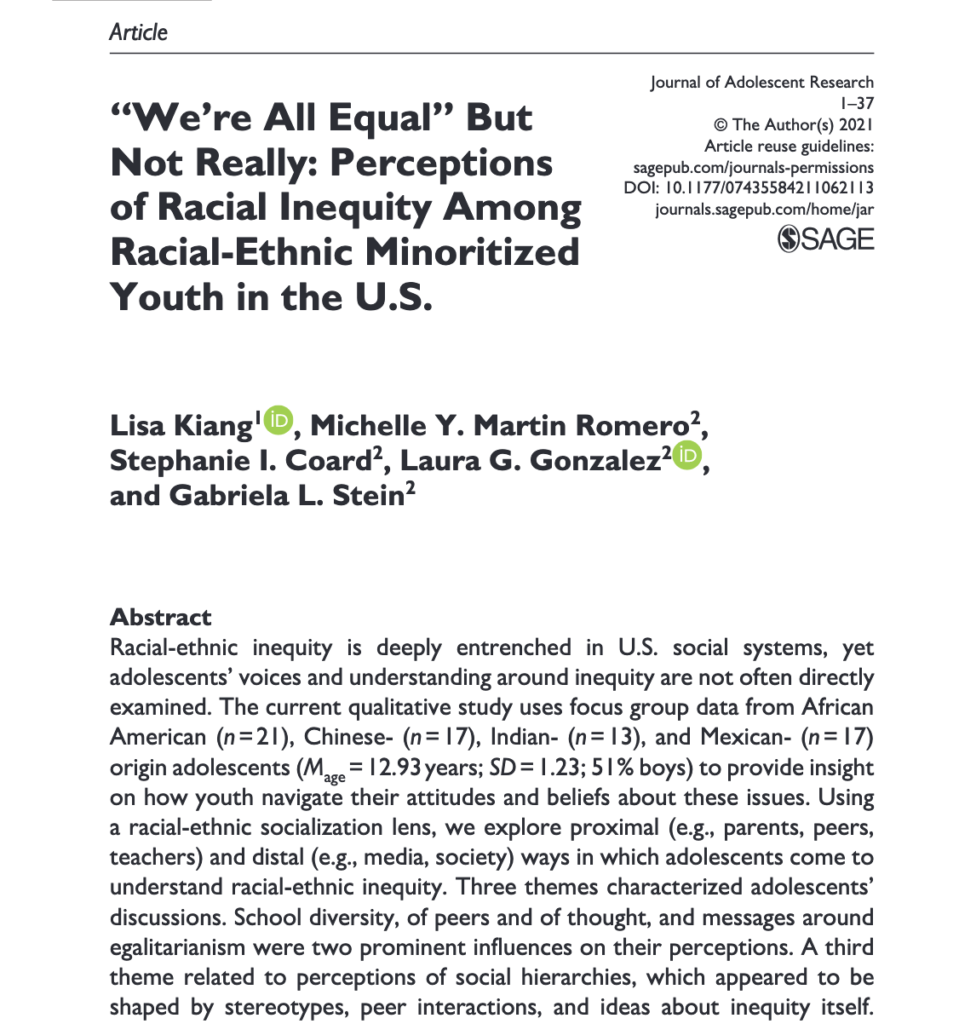
“We’re All Equal” But Not Really: Perceptions of Racial Inequity Among Racial-Ethnic Minoritized Youth in the U.S.
By Dr. Lisa Kiang, Michelle Y., Martin Romero, Stephanie I. Coard, Laura G. Gonzalez, and Gabriela L. Stein
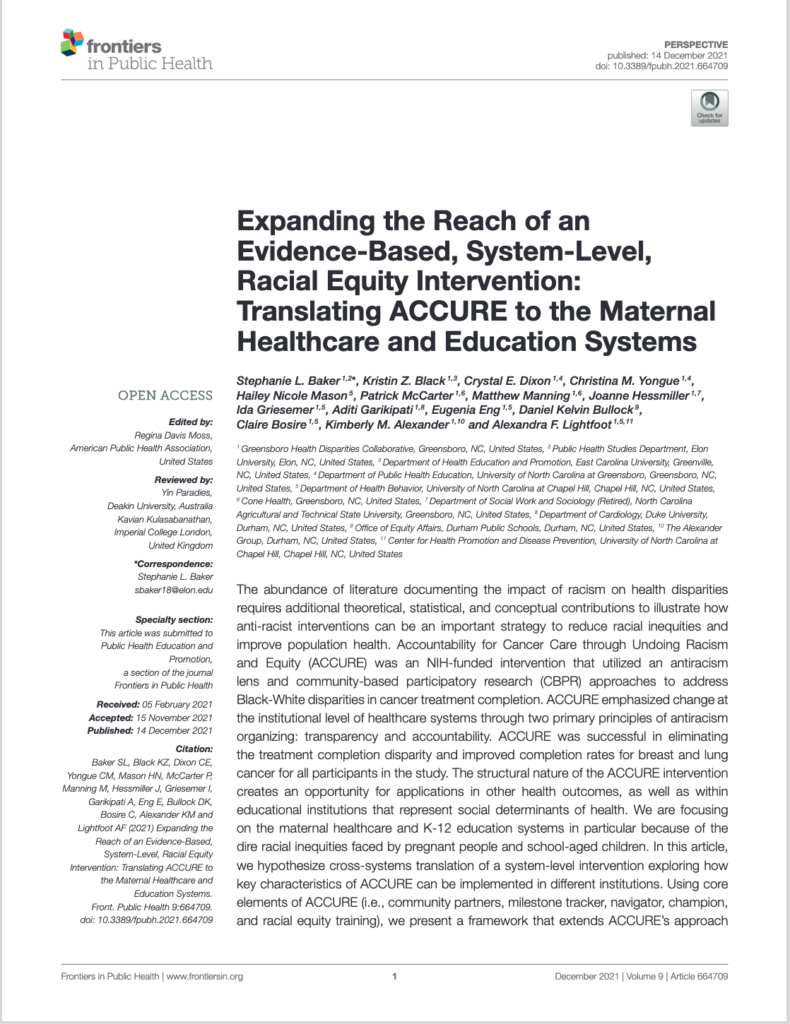
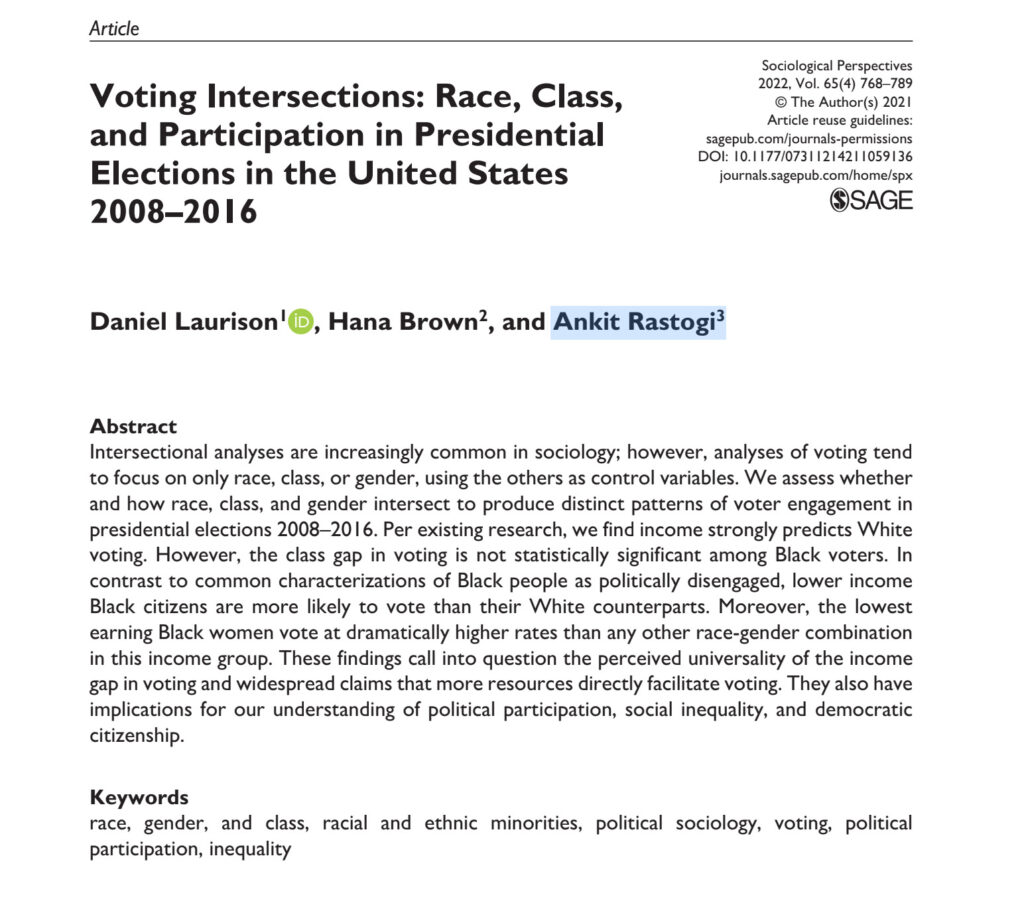
Voting Intersections: Race, Class, and Participation in Presidential Elections in the United States 2008-2016
By Dr. Hana E. Brown, Daniel Laurison, and Ankit Rastogi
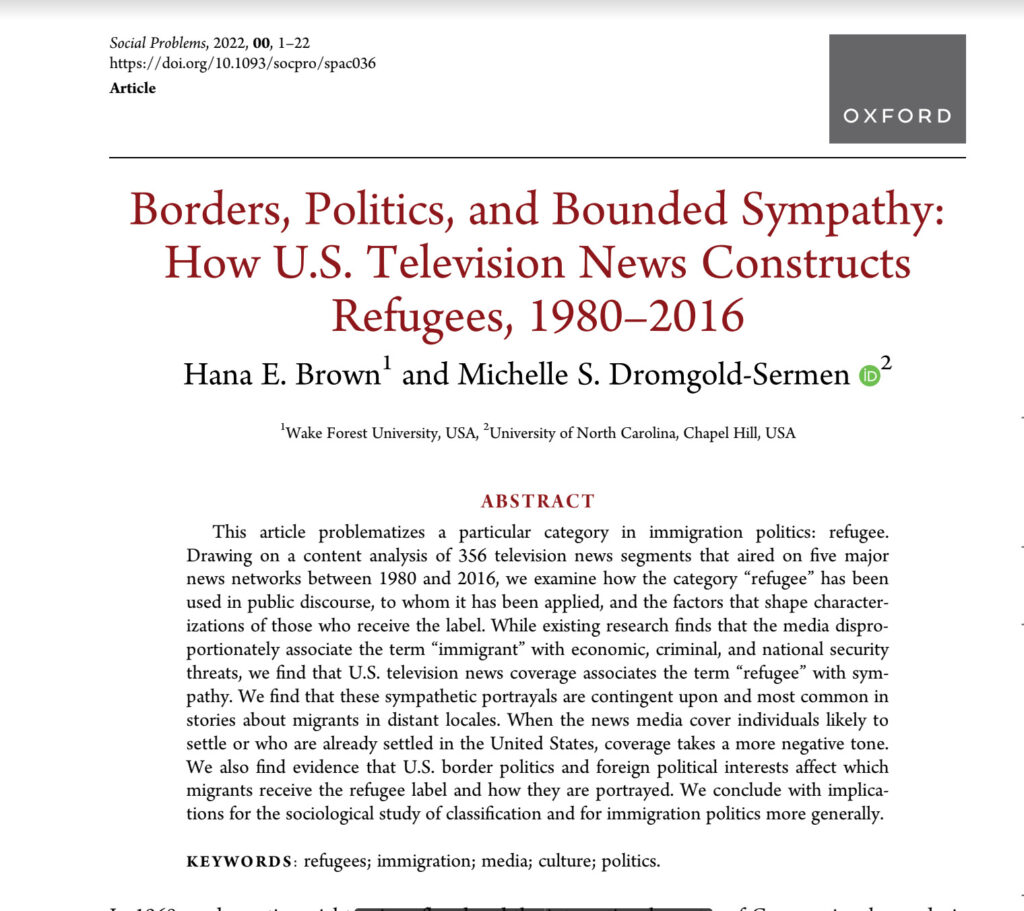
Borders, Politics, and Bounded Sympathy: How U.S. Television News Constructs Refugees, 1980-2016
By Dr. Hana E. Brown and Michelle S. Dromgold-Sermen
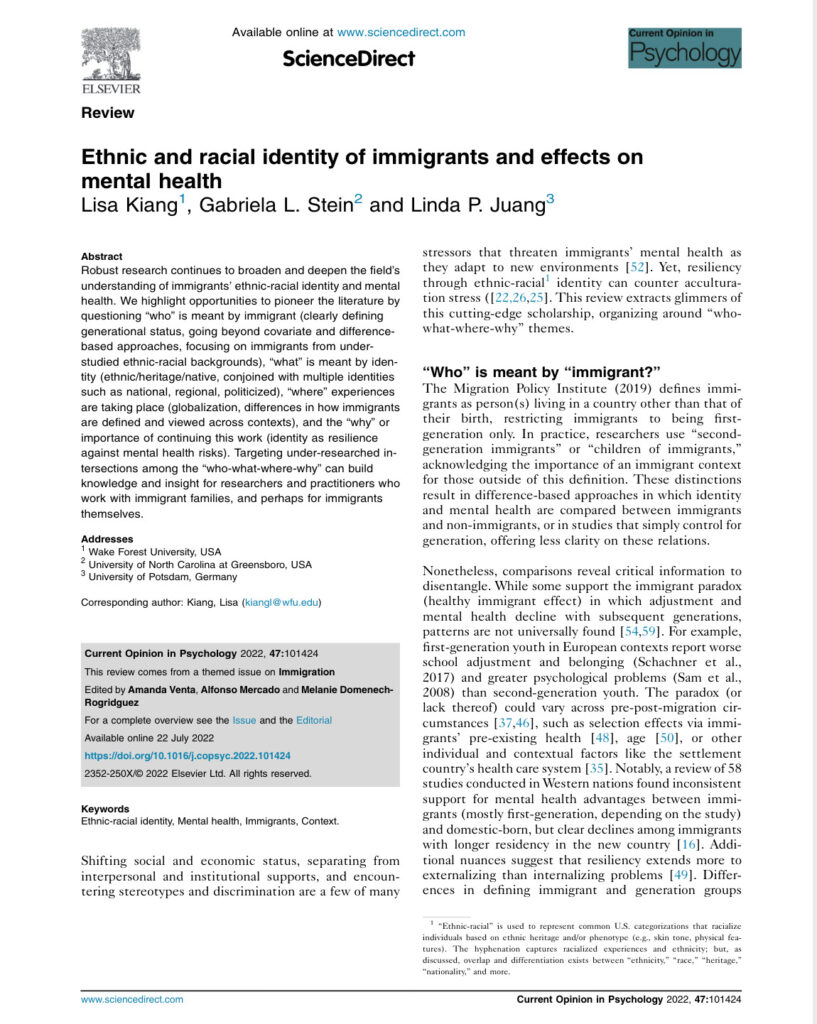
Ethnic and racial identity of immigrants and effects on mental health
By Dr. Lisa Kiang, Michelle Y., Martin Romero, Stephanie I. Coard, Laura G. Gonzalez, and Gabriela L. SteinBy Dr. Lisa Kiang, Gabriela L. Stein, and Linda P. Juang
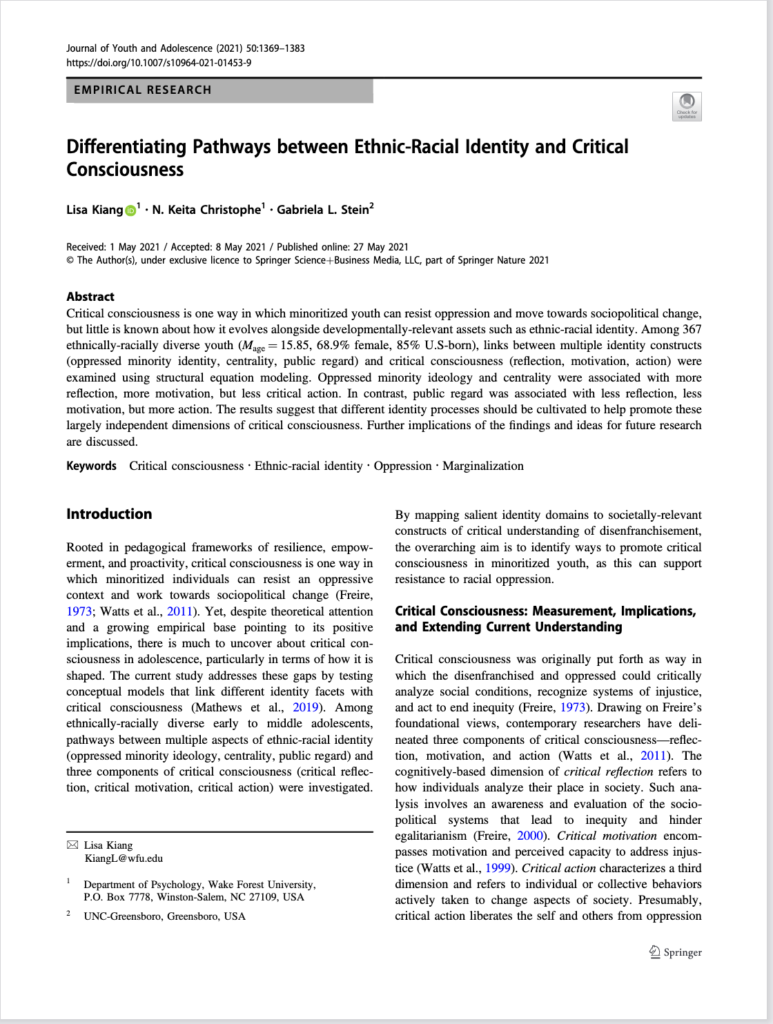
Differentiating Pathways Between Ethnic-Racial Identity and Critical Consciousness
By Dr. Lisa Kiang, N. Keita Christophe, and Gabriela L. Stein
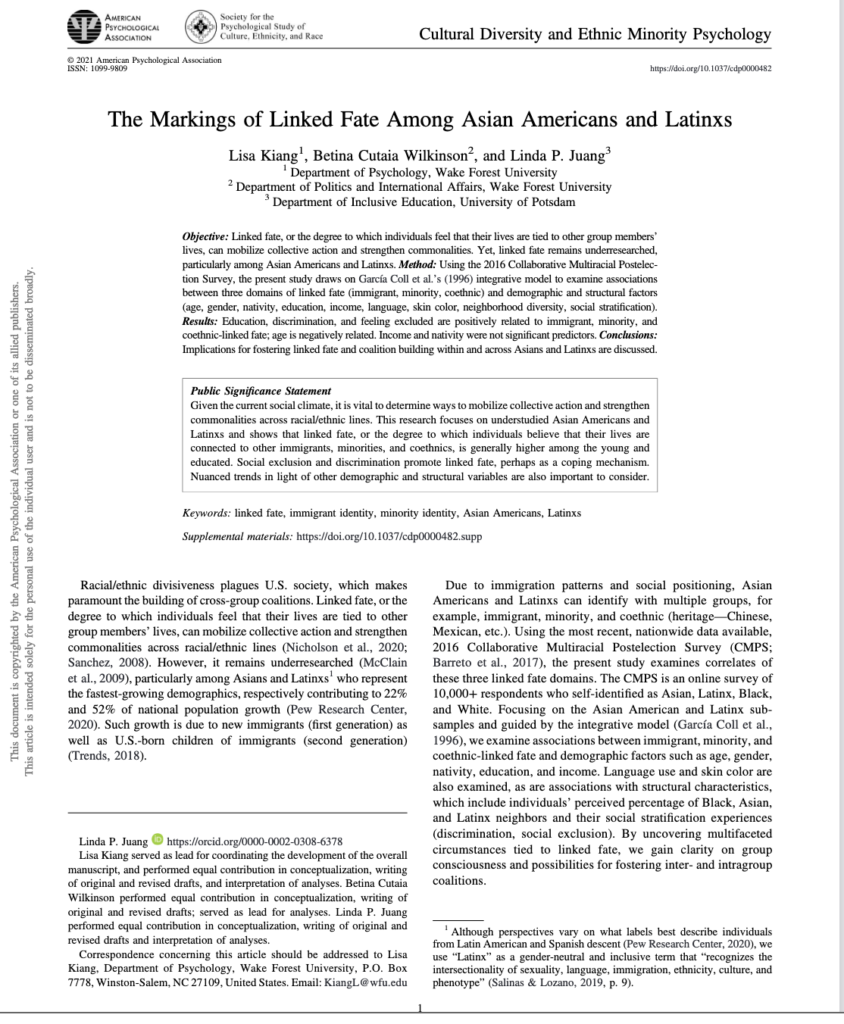
The Markings of Linked Fate Among Asian Americans and Latinxs
By Dr. Lisa Kiang, Dr. Betina Cutaia Wilkinson, and Linda P. Wong

“We’re All Equal” But Not Really: Perceptions of Racial Inequity Among Racial-Ethnic Minoritized Youth in the U.S.
By Dr. Lisa Kiang, Michelle Y., Martin Romero, Stephanie I. Coard, Laura G. Gonzalez, and Gabriela L. Stein
By Dr. Lisa Kiang, Michelle Y., Martin Romero, Stephanie I. Coard, Laura G. Gonzalez, and Gabriela L. Stein
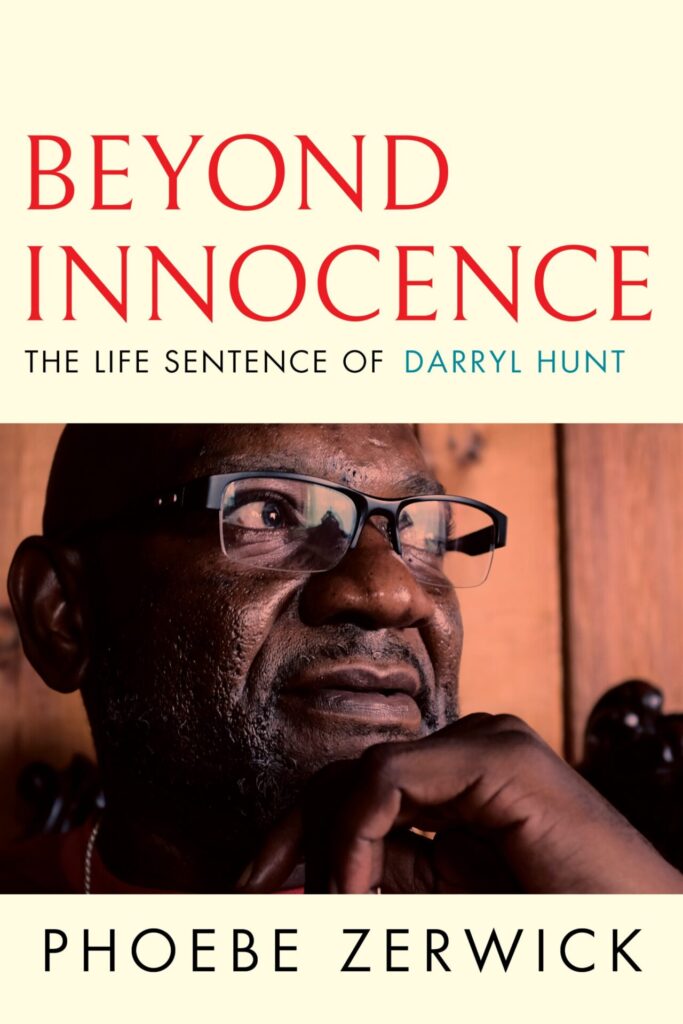
Beyond Innocence: The Life Sentence of Darryl Hunt
(Grove Atlantic, 2022)
By Phoebe Zerwick
In June 1985, a young Black man in Winston-Salem, N.C. named Darryl Hunt was falsely convicted and sentenced to life in prison for the rape and murder of a white copyeditor at the local paper. Many in the community believed him innocent and crusaded for his release even as subsequent trials and appeals reinforced his sentence. Finally, in 2003, the tireless efforts of his attorney combined with an award-winning series of articles by Phoebe Zerwick in the Winston-Salem Journal led to the DNA evidence that exonerated Hunt. Three years later, the acclaimed documentary, The Trials of Darryl Hunt, made him known across the country and brought his story to audiences around the world.
But Hunt’s story was far from over. As Zerwick poignantly reveals, it is singularly significant in the annals of the miscarriage of justice and for the legacy Hunt ultimately bequeathed. Part true crime drama, part chronicle of a life cut short by systemic racism, Beyond Innocence powerfully illuminates the sustained catastrophe faced by an innocent person in prison and the civil death nearly everyone who has been incarcerated experiences attempting to restart their lives. Freed after nineteen years behind bars, Darryl Hunt became a national advocate for social justice, and his case inspired lasting reforms, among them a law that allows those on death row to appeal their sentence with evidence of racial bias. He was a beacon of hope for so many—until he could no longer bear the burden of what he had endured and took his own life.
Fluidly crafted by a master journalist, Beyond Innocence makes an urgent moral call for an American reckoning with the legacies of racism in the criminal justice system and the human toll of the carceral state.
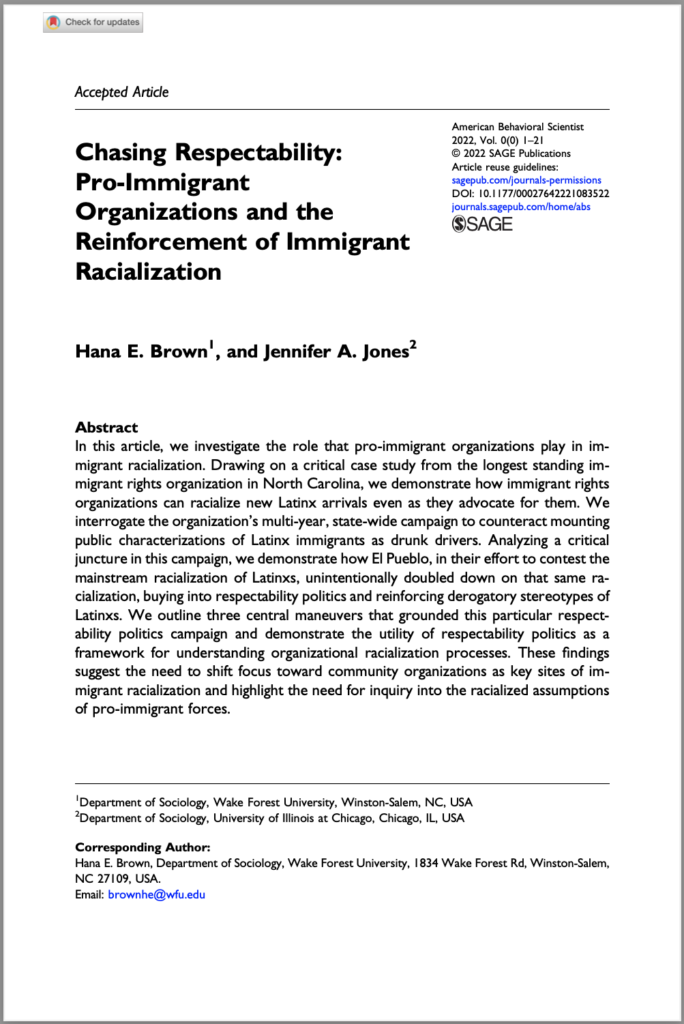
Chasing Respectability: Pro-Immigrant Organizations and the Reinforcement of Immigrant Racialization
By Dr. Hana E. Brown and Dr. Jennifer A. Jones

Placing a Band-Aid on a Bullet Wound? Black and Latinx Educational Experiences During a Pandemic
By Dr. Betina Cutaia Wilkinson, Dr. Dani Parker-Moore, Olivia Field, and Alondra Ramirez
Edited by Sharon A. Navarro and Samantha L. Hernandez
This study relies upon semi- structured interviews in a southern city to obtain a comprehensive understanding of how stay- at- home orders and remote learning affected Black and Latinx students. Building on Ladson-Billings’ (2006 , 2007) “education debt” argument, we frame this study as a comprehensive examination of the ways in which the education debt that Latinx and Blacks have incurred has skyrocketed since the start of the pandemic. Furthermore, we posit that the education and government institutions attempted to address a monumental problem with limited efforts and resources, much like putting a Band- Aid on a bullet wound. The topics that guide our pandemic study include (1) Latinx and Black children’s educational attainment and access to academic resources, (2) parents’ assessment of their and their children’s struggles, (3) teachers’ experiences in and out of the classroom, and (4) potential policy solutions to address the skyrocketing education debt that Latinx and Black students are incurring.

Sports Elites, Counter-stereotypical Statements, and Immigration Attitudes
By Dr. Betina Cutaia Wilkinson (Wake Forest University), Dr. Melissa Michelson (Menlo College), and Alexis Webster (WFU ’20)
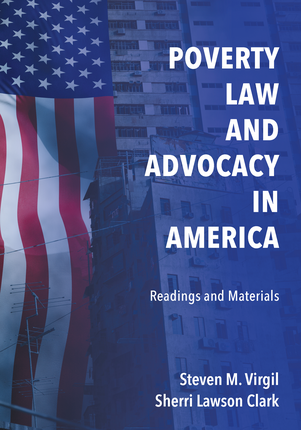
Poverty, Law, and Advocacy in America.
(Carolina Academic Press, 2021)
By Steven M. Virgil and Sherri Lawson Clark
Poverty Law: Readings and Materials begins by engaging students in thinking about what it is like to be poor and questioning commonly held conceptions about the poor. Part II of the book considers the needs of the poor and how these needs are met through the implementation of federal and state policy. This section demonstrates that while programs may effectively become stop-gap measures preventing families from falling into utter destitution, they do not enable families to effectively leave poverty. Part III discusses the structures for advocacy in the legal system and the role of lawyers who represent the poor.
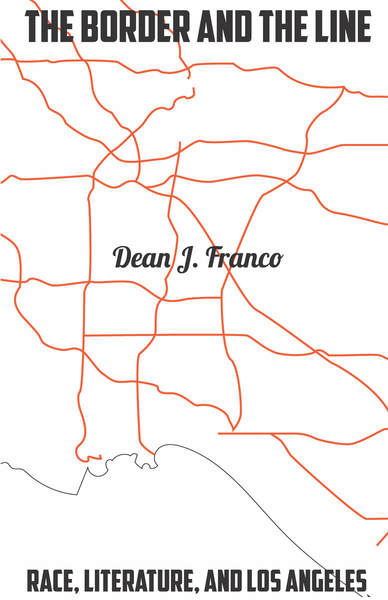
The Border and the Line: Race, Literature, and Los Angeles
(Stanford University Press, 2019)
By Dean J. Franco
Los Angeles is a city of borders and lines, from the freeways that transect its neighborhoods to streets like Pico Boulevard that slash across the city from the ocean to the heart of downtown, creating both ethnic enclaves and pathways for interracial connection. Examining neighborhoods in east, south central, and west L.A.—and their imaginative representation by Chicana, African American, and Jewish American writers—this book investigates the moral and political implications of negotiating space.
The Border and the Line takes up the central conceit of “the neighbor” to consider how the geography of racial identification and interracial encounters are represented and even made possible by literary language. Dean J. Franco probes how race is formed and transformed in literature and in everyday life, in the works of Helena María Viramontes, Paul Beatty, James Baldwin, and the writers of the Watts Writers Workshop. Exploring metaphor and metonymy, as well as economic and political circumstance, Franco identifies the potential for reconciliation in the figure of the neighbor, an identity that is grounded by geographical boundaries and which invites their crossing
Featured Research from RIPI Undergraduate Research Fellows
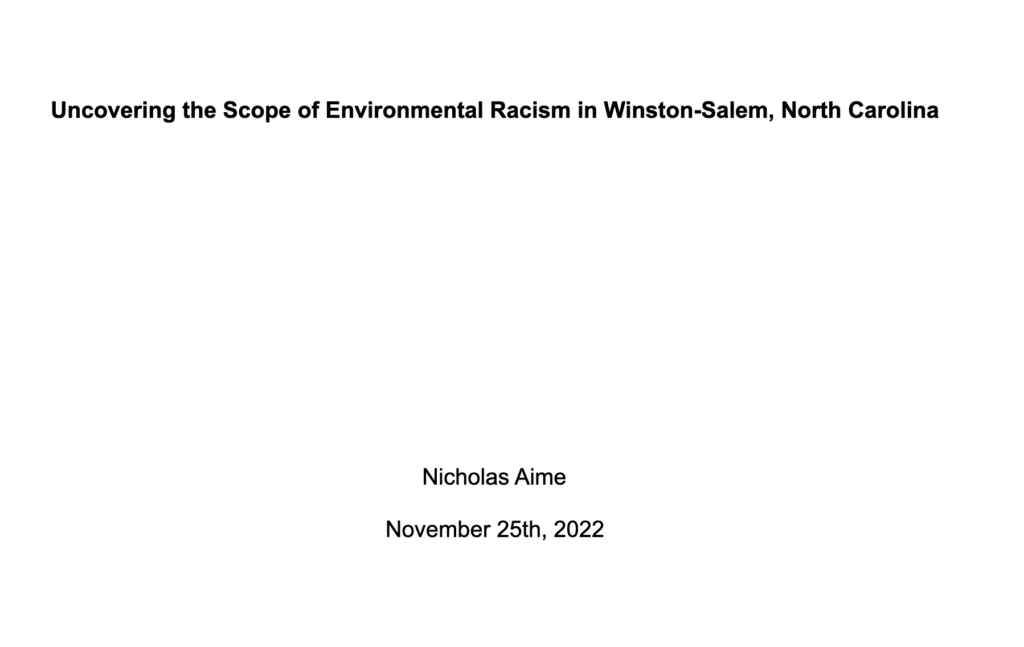
Uncovering the Scope of Environmental Racism in Winston-Salem, NC
By Nick Aime, RIPI Undergraduate Research Fellow
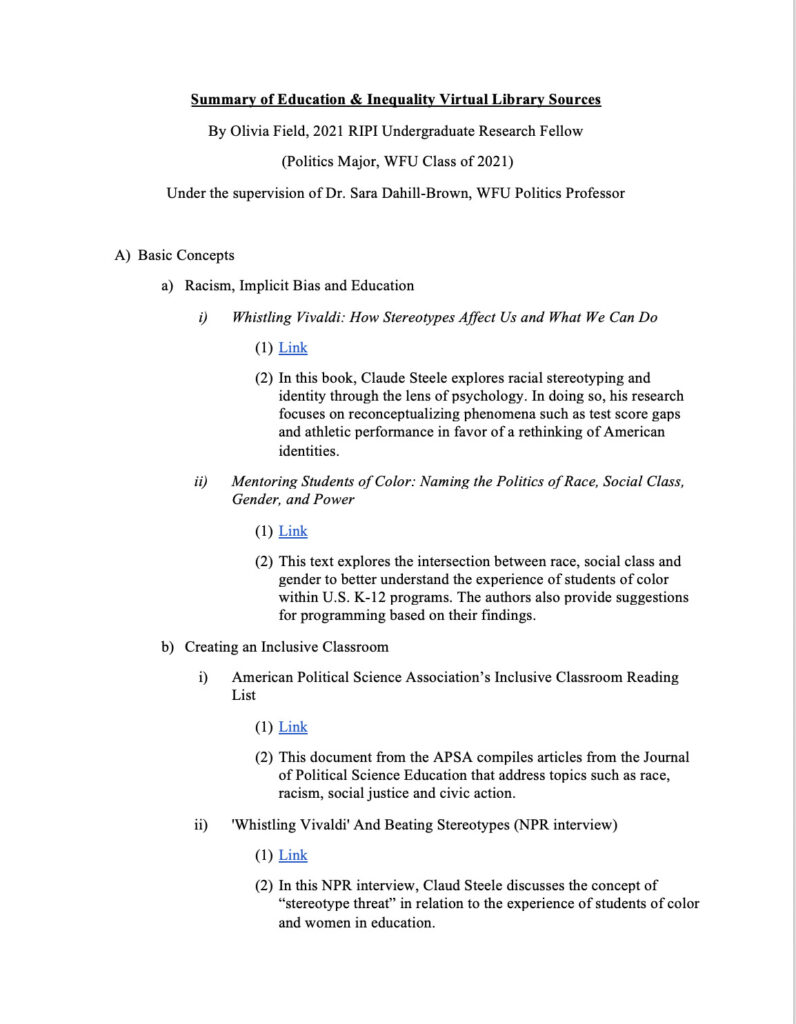
Summary of Education and Inequality Virtual Library Sources (Spring 2021)
By Olivia Field, under the guidance of Dr. Sara Dahill-Brown
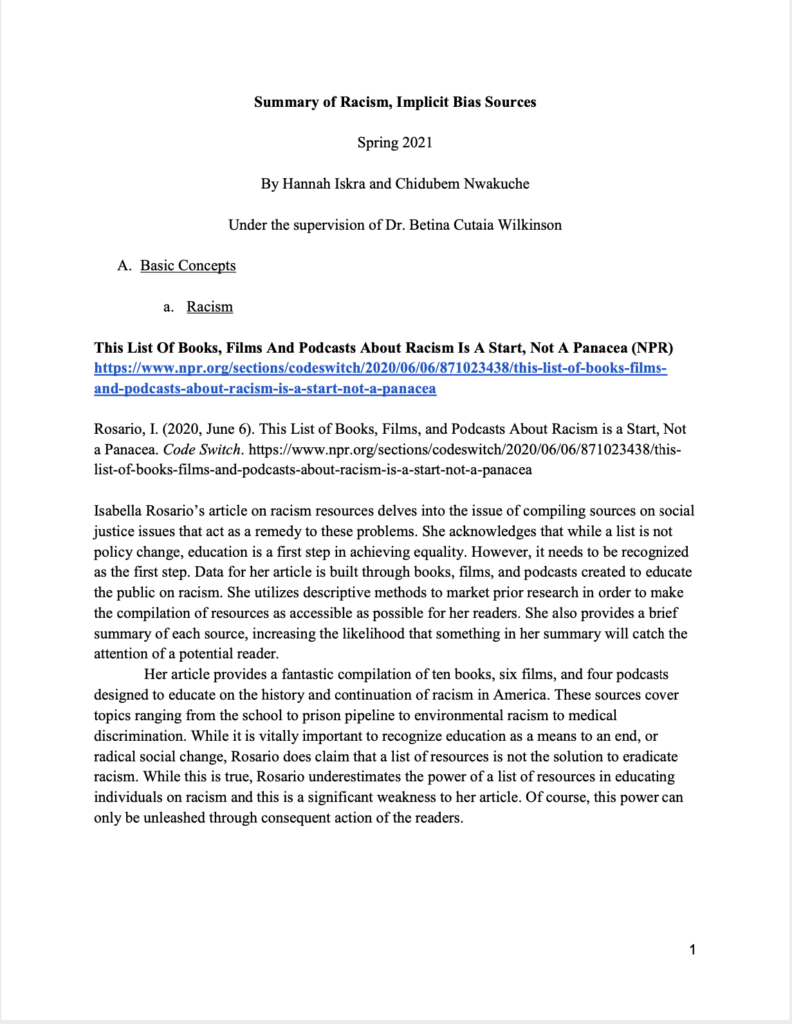
Summary of Racism and Implicit Bias Sources (Spring 2021)
By Hannah Iskra and Chidubem Nwakuche, under the guidance of Dr. Betina Cutaia Wilkinson
The land on which Wake Forest University now resides and the land on which the original campus resided served for centuries as a place for exchange and interaction for Indigenous peoples, specifically Saura, Catawba, Cherokee, and Lumbee in the current location and Shakori, Eno, Sissipahaw, and Occaneechi in the original campus location.
americanindiancenter.unc.edu/resources/about-nc-native-communities/
